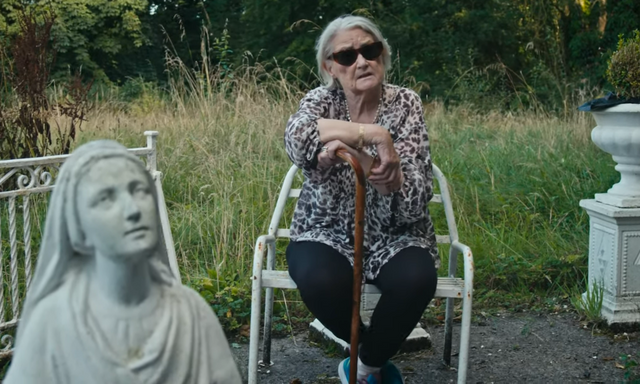From the '30s until the late '80s and early '90s, the Irish government and the Catholic Church operated a violent and barbaric system of abuse that saw corporal punishment against children and illegal adoptions of children from unwed mothers. In one small town in Meath however, a handful of people dared to stand against the combined powers of the church and state...
Unlike Sinead O'Shea's previous work 'A Mother Brings Her Son To Be Shot', much of the narration and the general emphasis in 'Pray For Our Sinners' is intimate and personal. Throughout the documentary, the interviewees talk to Sinead as a trusted confidant, and she's frequently heard off-screen asking questions. She grew up in the town where the story is set. She gently coaxes a thread of information from them, and while the subjects they speak of are brutal and dehumanising, there's a real sense of care and generosity in how it's done.
For anyone who's lived in Ireland in the past three decades or more, much of what 'Pray For Our Sinners' covers will not be remotely surprising. Physical abuse was widespread in primary and secondary schools. Women were treated practically like chattel and carted off to mother-and-baby homes. Afterwards, the women were shunned and exiled from their families and communities. Priests, bishops, and government and state officials facilitated all of this. For those of us who grew up in the long shadow of all this, it's hard not to wonder why anyone didn't stand up against it all and fight back against it. Was it the same for the generation who came up after Nazism, perhaps?
'Pray For Our Sinners' offers no easy answers, though the facts are bare for all to see. Dr. Mary Randles speaks in clear, unequivocal terms about what she saw and how she and her husband, the late Dr. Patrick Randles, made an attempt to stand up to the brutalities they saw. Their children were threatened in school, the tyres in their cars were slashed, and they lost over half their patients from their practice - yet they persevered in quiet dignity, never allowing themselves to be defeated. Likewise, when the documentary introduces survivors of corporal punishment and the mother-and-baby homes, the resilience they have is so understated but ironclad. It's so Irish, how people carry these terrible burdens and have to have it lured out of them to speak of it.
Nothing in 'Pray For Our Sinners' is easily explained and is often more nuanced than we first imagine. This is most evident in one of the key figures in the documentary - the late Fr. Andy Farrell. He is spoken of with fondness by local people but there's a sense that something is amiss, considering how active he was in participating in a broken and despicable system. Yet, through careful examination and probing, we see that it's far too easy to cast him as a villain in the story, and much too complex to capture in all of one of an eighty-odd-minute documentary.
In trying to cover "an empire" as Dr. Mary Randles calls it, the documentary sometimes loses its focus and certain threads of the story remain unfinished. For example, the practice was one of the first to offer contraceptives outside of Dublin, yet it's only discussed briefly. Both of the survivors of the mother-and-baby homes went on to marry and have other children, yet their lives beyond are only mentioned in passing. Yet, as one of them says quite shrewdly, a bad story often travels faster than a good one.










































































